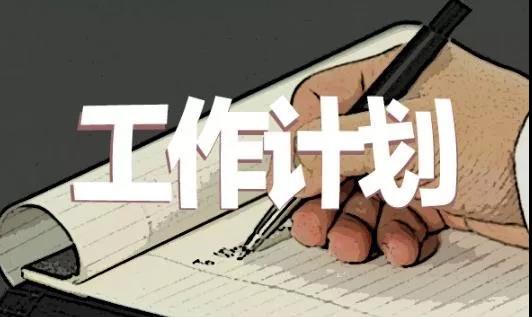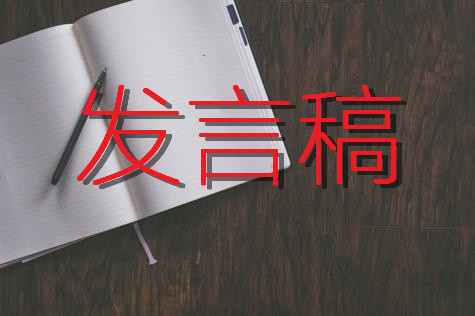下面是小编为大家整理的高二年级英语必修五知识点10篇(完整文档),供大家参考。

知识掌握的巅峰,应该在一轮复习之后,也就是在你把所有知识重新捡起来之后。这样看来,应对高二这一变化的较优选择,是在高二还在学习新知识时,有意识地把高一内容从头捡起,自己规划进度,提前复习。下面是的小编为您带来的高二年级英语必修五知识点优秀10篇,如果对您有一些参考与帮助,请分享给最好的朋友。
高二年级英语必修五知识点 篇一
1.hide sth.from sb.
隐藏某物不让人发现;对某人隐瞒某事
2.come to an end 完结
3.put an end to 结束,终止
4.bring. 。 。to an end 使…结束
5.in the end 终于;最后
6.date back to=date from 追溯到,开始于
7.dress up 装扮;打扮
8.dress up as. 。 。 装扮成…
9.dress up in red 穿上红色的衣服
10.dress sb.(oneself) 给某人穿衣
11.be dress in white 穿着白色衣服
12.make. 。 。with. 。 。 用…在…做标记
13.make. 。 。on. 。 。 在…上做…记号
of 由…组成;由…构成
15.give up 放弃
16.give away 赠送
17.give back 归还;恢复健康
18.give in to向… 让步,屈服于
19.give off 发出,放出(气体,气味等)
20.give out 分发(试卷等),筋疲力尽
高二英语必修五知识点归纳 篇二
重点语法:
Worried about the journey, I was unsettled for the first few days. Well-known for their expertise, his parents’ company …。.
Confused by the new surroundings, I was hit by the lack of fresh air. Exhausted, I slid into the bed and fell fast asleep. 过去分词作状语:过去分词作状语时,说明动作发生的背景或情况,其等同于一个状语从句。vt 过去分词作状语时与主句主语构成被动关系,表示被动和完成,vi 过去分词表示状态或动作的完成。
1、 作原因状语,等于as / since / because 引导从句
Moved by what she said ,we couldn’t help crying 。 = ( As we are moved by what she said …
2、 作时间状语,等于when 引导时间从句,如果分词表示的动作与谓语的动作同时发生,可在分词前加when/ while / until 等使时间意义更明确。 When heated , water can be changed into steam 。
Seen from the hill ,the park looks very beautiful 。= ( When the park is seen from the hill…
3、 作条件状语等于 if / whether 引导从句
Given more attention , the cabbages could have grown better 。= ( If they have been given more attention …。
Compared with you , we still have a long way to go = ( If we are compared with you …
4、 作方式或伴随状语
The actress came in , followed by her fans 。 She sat by the window , lost in thought 。
5、 作让步状语
Much tired ,he still kept on working 。=(Although he was tired ,) he …。
6、 独立主格结构: 当分词的逻辑主语不是主句主语时,分词可以有自己独立的逻辑主语,这种结构称为独立主格结构。常用来表示伴随情况。 The boy rushed into the classroom , his face covered with sweat 。 All things considered ,your article is of great value than hers 。
高二英语必修五知识点 篇三
【重点短语】
1、 fall ill 生病
Hearing the bad news, he fell ill. 听到坏消息后,他病了。
联想拓展
fall behind 落后
fall sick 生病
fall asleep 入睡
fall down 掉下;倒塌
fall in love with 。.。 爱上……
fall off 脱落;减少;从……上掉下
fall into the habit of 。.。 养成……的习惯
fall over 跌倒;翻倒;落到……上
fall silent 沉默
2、 in place
在适当的位置;适当
I like everything to be in place.
我喜欢所有的东西都放在原来的地方。
With everything in place, she started the slide show.
一切就绪,她开始放幻灯片。
联想拓展
be in/out of order 有条理/无条理;坏了
be in/out of control 正常/失控
be in/out of danger 有危险/脱离危险
in place of.。.=take the place of.。. 代替;取代
give place to 被……取代;让位于……
out of place 不在适当的位置; 不合适
3、 make a difference
有很大差别;有很大不同;有很大的关系/影响
Whether he could get the support from his parents made a great difference to the plan.
他是否能得到父母的支持对这个计划的影响很大。
Does it any difference whether he?ll attend the meeting?
他出不出席会议有什么区别吗?
联想拓展
make a difference between 。.。and 。.。 区别对待……
make some difference to对…… 有些关系
make no difference to 对……没有关系
make all the difference 关系重大;大不相同
高二年级英语必修五知识点 篇四
一、主语
主语是句子陈述的对象,说明是谁或什么。表示句子说的是"什么人"、“什么事”、“什么东西”、“什么地方”等等。
名词、代词、数词、动名词、To do不定式、一个句子 都可以做主语。
二、谓语
谓语是对主语动作或状态的陈述或说明,指出“做什么”、“是什么”或“怎么样”。 谓语动词的位置一般在主语之后。
三、宾语
宾语,又称受词,是指一个动作(动词)的接受者。宾语分为直接宾语和间接宾语(间接宾语也称宾语补足语)两大类,其中直接宾语指动作的直接对象,间接宾语说明动作的非直接,但受动作影响的对象。一般而言,及物动词后面最少要有一个宾语,而该宾语通常为直接宾语,有些及物动词要求两个宾语,则这两个宾语通常一个为直接宾语,另一个为间接宾语。名词、代词、数词、动名词、To do不定式、一个句子 都可以做宾语,而to do不定式用于宾语补足语。
四、定语
定语是用来修饰、限定、说明名词或代词的品质与特征的。 主要有形容词此外还有名词、代词、数词、介词短语、动词不定式(短语)、分词、定语从句或相当于形容词的词、短语或句子都可以作定语。 汉语中常用„……的‟表示。定语和中心语之间是修饰和被修饰、限制和被限制的关系。在汉语中,中心语与定语二者之间有的需要用结构助词“的”,有的不需要,有的可要可不要。 “的”是定语的标志。
高二英语必修五知识点 篇五
1)句首为否定或半否定的词语,如no,not,never,seldom,little,hardly,atnotime,innoway,notuntil…等。
NeverhaveIseensuchaperformance.
Notuntilthechildfellasleepdidthemotherleavetheroom.
当Notuntil引出主从复合句,主句倒装,从句不倒装。
注意如否定词不在句首不倒装。
Ihaveneverseensuchaperformance.
典型例题
1)WhycantIsmokehere?
Atnotime___inthemeeting-room
A.issmokingpermittedB.smokingispermitted
C.smokingisitpermittedD.doessmokingpermit
答案A.这是一个倒装问题。当否定词语置于句首以表示强调时,其句中的主谓须用倒装结构。这些否定词包括no,little,hardly,seldom,never,notonly,notuntil等。本题的正常语序是
Smokingispermittedinthemeeting-roomatnotime.
高二年级英语必修五知识点 篇六
1、 将来进行时的句型结构
will/shall + be + 现在分词
shall用于第一人称I和we,will可用于各人称。而在美式英语中所有人称都用will。
2、 将来进行时的用法
(1)。 表示在将来某一时间段内正在进行的动作。常与at 7 o’clock tonight, next year, by this time tomorrow等时间状语连用。有时没有明确的时间状语。
e. g. I will be studying in America next year. 我明年将在美国学习。
By this time tomorrow, I will be lying on the beach. 明天这个时间,我会正躺在沙滩上。
We shall be working in a big modern office building.
我们将在一个很大的现代化办公楼里工作。
(2) 表已经决定或安排好要发生的动作或事情。
e. g. We shall be meeting in Carrifour at 6 o’clock this afternoon.
我们定于今天下午六点在家乐福见面。
Tom will be seeing his friend off at the airport tomorrow.
汤姆明天将于机场为他的朋友送行。
(3) 预测将来会发生的事情,表将来的某种可能性。
e. g. If we keep working hard like this, we will be making a miracle.
如果我们继续这样努力工作的话,我们会创造奇迹的。
(4) 将来进行时除表示未来以外,还可表示亲切或委婉的语气。
e. g. I shall be thinking of you. 我会想你的。
Will you be staying here long? 你会在长时间呆这儿吗?
辨析:现在进行时/将来进行时
两者都可以用来表将来的动作。但现在进行时通常用于表示不远的将来的动作,而且有确
定的时间,而将来进行时则可以和确定的时间状语连用,也可以不用,既可以表示不远的将来的动作,也可以表示较远的将来的动作。
e. g. We are meeting him tomorrow/ We will be meeting him tomorrow.我们明天将会见到他。
We will be meeting him next year. 我们明年将会见到他。(注意此句不可用进行时,因为明年是较远的将来时间)
高二英语必修五知识点 篇七
【重点句型】
1、 Remove clothing using scissors if necessary unless it is stuck to the burn.
除非衣服粘贴在烧伤面上,否则都要把衣服脱掉。如果需要的话,可以使用剪刀。
unless是连词,意为“如果不,除非”。在真实条件句中,unless引导的肯定条件状语从句,可以和if.。.not.。.引导的否定状语从句互换。
Unless you change your mind,I won,t be able to help you.
=If you don?t change your mind,I won ’t be able to help you.
除非你改变想法,否则我不能帮助你。
I want you to keep working unless I tell you to stop.
=I want you to keep working if I don’t tell you to stop.
如果我没说让你停,你就得继续干。
注意:unless 不可用于假想的事情,因此当if.。.not引导非真实条件状语从句时,一般不可改用unless。
高二英语必修五语法知识点 篇八
【现在完成进行时】
1、 现在完成进行时的定义
现在完成进行时表示某动作从过去某个时间开始,一直延续到现在,并且还有可能持续下去。如:
We have been waiting for him for two hours. 我们等他等了两个小时。
2、 现在完成进行时的结构
现在完成进行时由“have /has been + 现在分词”构成。
3、 现在完成进行时的应用
现在完成进行时所用的时间状语:this month / week / year, these days, recently / lately, in the past few + 时间段, since +时间点, for + 时间段。如:
They have been building the bridge for two month. 两个月来他们一直在修桥。
They have been planting trees this month. 这个月来他们一直在植树。
4、 现在完成进行时与现在完成时的区别
(1) 现在完成时强调动作的完成,而现在完成进行时强调动作的延续,因此,表示动作的完成,只能用现在完成时,而不能用现在完成进行时。如:
He has changed his idea. 他改变了想法。
(2) 在表示动作的延续时,虽然既可用现在完成时,也可用现在完成进行时,但现在完成进行时强调动作的进行。因此在需要明确表示动作还要持续下去时,应用现在完成进行时。如:
We have been studying here for two years. 我们在这儿已经学习了两年了。
(3) 有些延续性动词(如 keep, learn, live, stay, study, work等),用于现在完成时或现在完成进行时的区别不大。如:
I have lived here for many years.=I have been living here for many years. 我在这儿住了多年了。
高二英语必修五知识点 篇九
Notuntiltheearlyyearsofthe19thcentury___whatheatis.
A.mandidknowB.manknowC.didntmanknowD.didmanknow
答案D.看到Notuntil…的句型,我们知道为一倒装句,答案在C,D中选一个。
改写为正常语序为,Mandidnotknowwhatheatisuntiltheearlyyearsofthe19th.现在将not提前,后面就不能再用否定了,否则意思就变了。
以否定词开头作部分倒装
如Notonly…butalso,Hardly/Scarcely…when,Nosooner…than
Not only did here fuse thegi ft,healsoseverelycriticizedthesender.
Hardly had she gone out when a student came tovisither.
英语必修五知识点 篇十
【重点句型】
1、 Remove clothing using scissors if necessary unless it is stuck to the burn.
除非衣服粘贴在烧伤面上,否则都要把衣服脱掉。如果需要的话,可以使用剪刀。
unless是连词,意为“如果不,除非”。在真实条件句中,unless引导的肯定条件状语从句,可以和if.。.not.。.引导的否定状语从句互换。
Unless you change your mind,I won,t be able to help you.
=If you don?t change your mind,I won ’t be able to help you.
除非你改变想法,否则我不能帮助你。
I want you to keep working unless I tell you to stop.
=I want you to keep working if I don’t tell you to stop.
如果我没说让你停,你就得继续干。
注意:unless 不可用于假想的事情,因此当if.。.not引导非真实条件状语从句时,一般不可改用unless。
例题:单项填空
①All the dishes in this menu, ______ otherwise stated, will serve two to three people.
A. As B. if C. though D. unless
②Don’t promise anything ______ you are one hundred percent sure.
A. Whether B. after C. how D. unless
解析: ①选D。考查状语从句的引导词。句意为:在这份菜单上的所有菜,除非另外说明,会给两到三个人食用。
②选D。句意为:除非你有完全的把握,否则不要做出承诺。unless除非。
2、 John was studying in his room when he heard screaming.
约翰正在房里学习,突然听到一声尖叫。
此句型中when作并列连词,相当于and then,意为“正当……时,突然”。
常用结构:
be doing.。.when.。. 正在做……突然……
had done.。.when.。. 刚做了……突然……
be about to do.。.when.。. 刚要做……突然……
be on the point of doing sth. when.。. 刚要做……突然……
例题:单项填空
①She had just finished her homework _____ her mother asked her to practice playing the piano yesterday.
A. When B. while C. after D. since
②We were swimming in the lake ______ suddenly the storm started.
A. When B. while C. until D. before
③I ______ along the street looking for a place to park when the accident 。
A. went; was occurring B. went; occurred
C. was going; occurred D. was going; had occurred
解析: ①选A。由句意可知此处when用作并列连词,意为“这时”。②选A。when作连词,表示“正在这时”。句意为:我们正在湖中游泳,突然暴风雨来了。③选C。主句要用过去进行时,表示当时正在路上走着;when引导的从句多用一般过去时。







